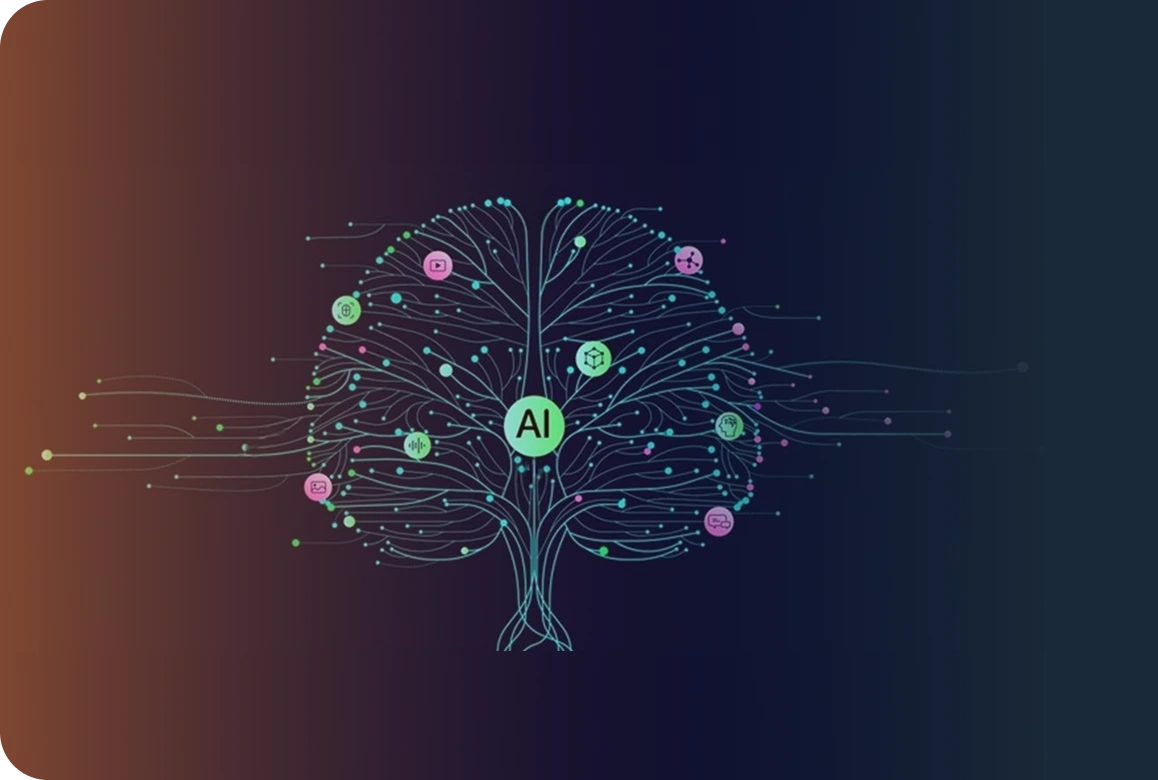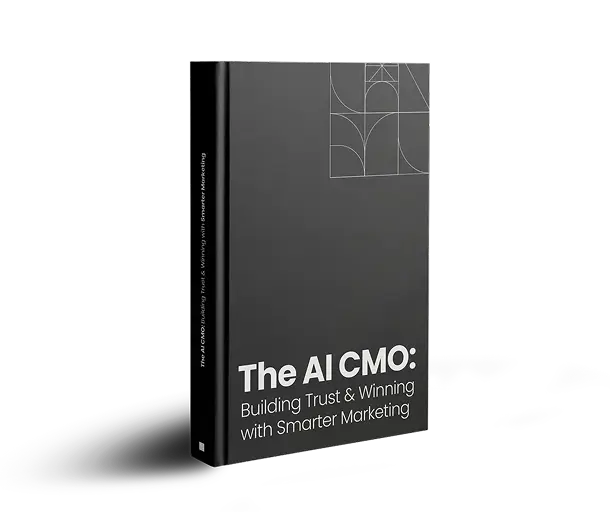AI has Shifted!
Have you noticed how AI has shifted from a marketing tool to a core driver of B2B growth? Today, it’s at the center of how businesses plan, execute, and optimize campaigns. AI-driven campaign management is about smarter strategy, precise targeting, and measurable results.
From hyper-personalization to predictive analytics, AI in B2B marketing campaigns is transforming how we generate demand, nurture leads, and accelerate revenue. And this is just the beginning, by 2025, AI will become essential for staying competitive.
In this article, I’ll explore how AI-driven marketing is reshaping campaign management, where the future is headed, and how we’re integrating AI to deliver end-to-end campaign optimization.
Why AI-Driven Campaign Management Matters
The
B2B buying process isn’t what it used to be. Buyers research across multiple channels, engage with dozens of touchpoints, and take longer to make decisions. That makes campaigns harder to plan and even harder to optimize using traditional methods. Manual execution simply can’t keep up with the speed of today’s market.
This is where AI-driven campaign management proves its value. With AI-powered campaign management, you’re not just reacting to what buyers did last quarter, you’re staying ahead of them in real time.
AI makes it possible to dig through massive amounts of buyer data, uncover patterns, and act instantly. It can personalize campaigns for each segment, predict outcomes before launch, and adjust spending or targeting the moment performance shifts, all while improving efficiency, boosting conversion rates, and driving measurable ROI.
How AI Is Transforming B2B Campaign Management
1. Smarter Strategy and Planning with Predictive Intelligence
With AI-driven campaign management, marketers base their decisions on real-time data and predictive insights instead of assumptions or static benchmarks. Predictive analytics takes historical data, market trends, and buyer signals to forecast demand and highlight the accounts most likely to convert. This means marketers invest budgets where they have the highest chance of driving real impact.
2. Hyper-Personalization at Scale
Personalization has always been the holy grail of B2B marketing, but doing it manually is impossible at scale. AI marketing campaigns change that. Generative AI can instantly adapt ad creatives, emails, and landing pages for different accounts or personas, making messaging highly relevant. The result? Better engagement and faster movement through the sales funnel.
3. Real-Time Campaign Optimization
Gone are the days of waiting weeks to see what’s working. AI-powered campaign management continuously monitors performance and makes adjustments on the fly, reallocating budgets, shifting targeting, and tweaking bids automatically so every dollar works harder and ROI keeps improving.
4. Full-Funnel Impact
The value of AI-driven campaign management isn’t limited to top-of-funnel awareness. AI strengthens every stage:
- Top-of-funnel: Smarter audience segmentation and targeted reach.
- Mid-funnel: Automated nurturing workflows and accurate lead scoring.
- Bottom-funnel: Predictive sales enablement and optimized conversion strategies.
5. Stronger Sales and Marketing Alignment
One of the biggest challenges in B2B is getting sales and marketing on the same page. AI bridges that gap by providing a single source of truth on account engagement, pipeline velocity, and revenue contribution, reducing friction and helping deals close faster.
Real Case Study: Lenovo’s AI-Driven Campaign Management
Challenge:
Lenovo, a global tech manufacturer, wanted to improve the effectiveness of its B2B campaigns in enterprise IT and SMB segments. Their existing processes were siloed: marketing and sales data weren’t fully integrated, lead scoring was manual/heuristic, and campaign targeting was broad rather than account-specific. Campaigns were generating leads, but many were low quality, and sales cycles were long.
What They Did:
- They implemented an AI platform (via Lattice Engines) to unify sales and marketing data, linking customer usage, engagement, tone of past interactions, firmographics, etc.
- Deployed predictive lead scoring to identify which prospects/accounts were most likely to buy (or renew/upgrade).
- Targeted campaigns with AI-driven insights: directing heavier resources (ads, outreach) toward high-potential accounts.
Results:
- 1.5× increase in marketing-attributed pipeline (so marketing’s contribution to potential deals grew by 50%)
- The sales cycle for targeted accounts was 20% faster, indicating that deals closed more quickly when the predictive and targeting system was used.
- The sales & marketing team saved time: automation and AI lead scoring reduced manual qualification effort.
The Future of AI-Driven Campaign Management in B2B
By 2025, AI-driven campaign management in B2B will be far more dynamic than it is today. We’re heading toward an era where campaigns run almost autonomously, with AI handling the heavy lifting and marketers focusing on strategy.
Imagine this: instead of spending weeks building a campaign plan, you feed your historical data into an AI platform. It instantly generates a strategy, target accounts, messaging themes, recommended channels, and even budget allocation. Once the campaign launches, AI doesn’t just sit back and report results, it monitors engagement in real-time, shifting ad spend to high-performing channels, suppressing low-intent audiences, and tweaking email subject lines on the fly.
Generative AI tools will create campaign assets, ads, social copy, and landing page variations in minutes, making it easy to A/B test at scale. And with precision attribution models, CMOs will see exactly which campaigns are driving pipeline and revenue, not just clicks or impressions.
For example, a B2B SaaS company could run a multi-channel campaign and watch as AI automatically increases spend on LinkedIn ads targeting CFOs (because they’re engaging more), while pausing underperforming display ads, all without manual intervention.
The result? Faster go-to-market execution, more efficient budget utilization, and clear visibility into ROI, allowing marketing teams to focus on strategy and creativity rather than chasing data.
How to Start Implementing AI-Driven Campaign Management
Most B2B marketers hesitate when it comes to AI. I hear the same concerns again and again: “What if it’s too complex?” “Will it replace my team?” “Do we even have the right data?”
The truth is, adopting AI-driven campaign management doesn’t have to be overwhelming. The key is to start small, learn as you go, and scale once you see results. Here’s a practical roadmap I recommend:
Begin with data readiness: Clean and unify your CRM,
marketing automation, and intent data. AI works best with accurate, connected data sources.
Run a pilot campaign: Choose one area, like lead scoring or ad budget optimization, and test how AI impacts performance. This helps you build a proof of concept before rolling it out across all campaigns.
Use AI for creative testing: Leverage generative AI marketing tools to create variations of ad copy, email subject lines, and landing pages. Let AI learn which ones drive the highest engagement.
Monitor real-time performance: Implement AI-powered campaign management dashboards to track pipeline impact, not just vanity metrics. Use those insights to adjust campaigns instantly.
Marketers who take this phased approach often see quick wins, higher CTRs, better lead quality, and stronger ROI, making it easier to secure budget and buy-in for larger AI investments.
Final Thoughts
The future of AI-driven campaign management isn’t about taking marketers out of the equation, it’s about amplifying their impact. By handling the data crunching and repetitive tasks, AI frees marketing teams to focus on the work that moves the needle: strategy, creative storytelling, and building meaningful customer relationships.
As we move closer to 2025, the most successful B2B teams will be the ones that embrace AI in
B2B marketing campaigns early, invest in clean, connected data, and use automation to move faster and smarter.
If your campaigns are still running on manual processes, now is the perfect time to test AI-powered campaign management. Even a small pilot can show you how quickly AI can improve efficiency, boost conversions, and create a measurable impact on pipeline and revenue.










